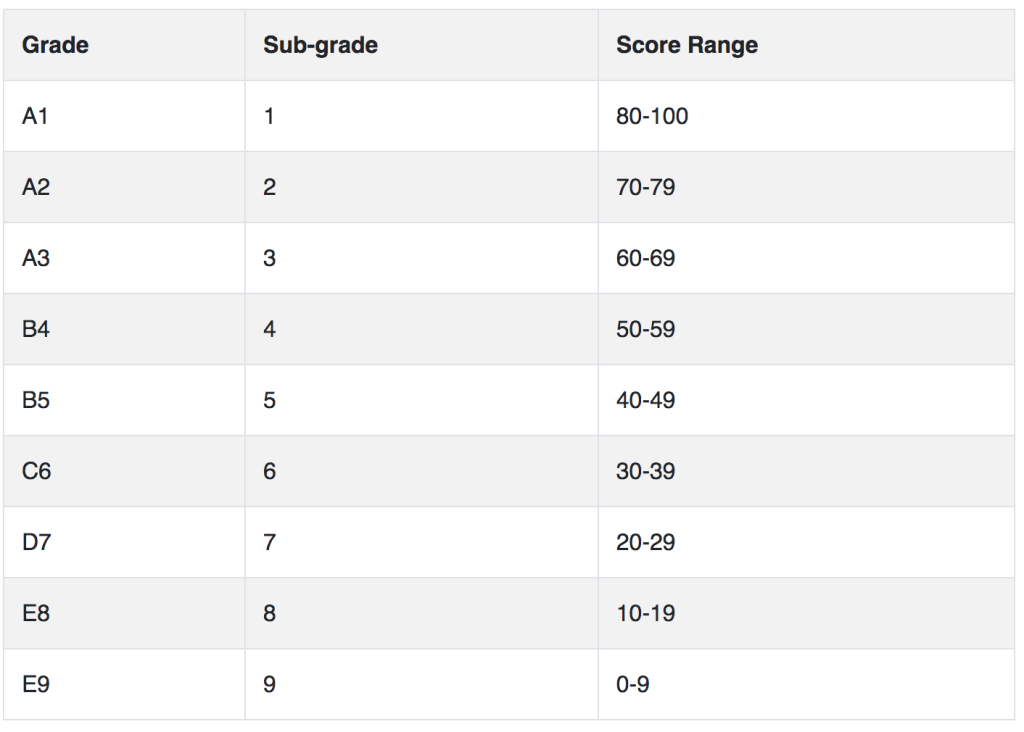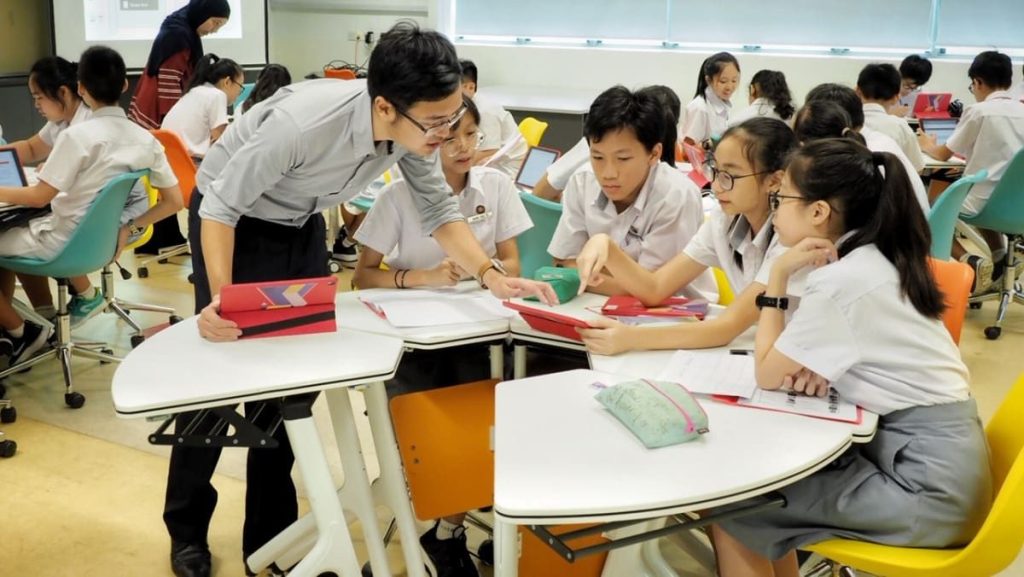The Importance of National Examination in Singapore
The PSLE Scoring System in Singapore has undergone several changes as it is important to grade students properly. PSLE is one of the most important national exams that test students’ ability to understand and apply the concepts that are being learnt in school to solve problems.
Getting a good PSLE score is important so students can access a good secondary school. Students will be segregated into Express, Normal Academic and Normal Technical based on the score they get and which secondary school they get into.

Source: s.yimg.com
Good subject scores will eventually translate into a good psle score. Getting good subject scores depends on how well students get the appropriate guidance and how motivated they are to reach a good achievement level.
PSLE score determines which secondary school students will enter; it also determines which career pathway students will travel on as well. PSLE is considered an important milestone for all students in Singapore, and it’s of paramount importance for students to get good subject scores so that the cumulative T-Score will be a good one.
The Socioeconomic Gap
Unfortunately, the PSLE also indicates students’ socioeconomic background, which is often unspoken of. Families that are better off would be able to provide a greater quality of education by signing their children up for enrichment classes and tuition from the beginning.

Source: miro.medium.com
The Ministry of Education announced that from the year 2023 onwards, the PSLE scoring system would have wider scoring bands. This is done to cushion the effects of the slightest inequity that students even face regarding the socioeconomic gap in education.
This is also helpful in allowing more space for students to choose their ideal secondary school without worrying about losing their place for a point or two.
PSLE Scoring System in Singapore
The PSLE grading system consists of grades A to E, with A being the highest and E being the lowest. There are sub-grades of 1, 2, 3, 4, and 5, with 1 being the highest and 5 being the lowest.
The old t core system has had its own pros and cons and many parents had no idea of how its calculated. This new system allows your child to take his individual subjects at different levels based on his strengths and weaknesses.
The PSLE grading system is used to rank students within their cohort and to place them in the appropriate secondary school based on their performance. Students are generally placed in secondary schools based on their overall score and the availability of spots in the school.

Source: singaporeassignmenthelp.com
The grading system consists of grades A to E, with A being the highest and E being the lowest. The grades are further divided into sub-grades of 1 to 9, with 1 being the highest within each grade and 9 being the lowest. The score range for each grade and sub-grade is also provided in the table. The minimum score required to pass the PSLE is 20 for each subject.
Holistic Development Profile of Primary 5 Students
Holistic Development Profile (HDP) shows the overall performance of primary 5 students in Singapore to assess their competency holistically. It covers areas such as academic, social, emotional, physical, and aesthetic abilities.
The HDP report for Primary 5 students comprises their academic performance, holistic development (in terms of emotional and physical well-being), strengths and weaknesses identified by tutors, and further suggestions of how students can develop themselves further.
How is Education Evolving in Singapore And in The Rest of The World?
In Singapore
Education in Singapore and around the world is evolving to become more student-centric, with a greater emphasis on creating experiences tailored to each learner’s individual needs. The PSLE scoring system is one-way educational systems adapt to this changing landscape.

Source: onecms-res.cloudinary.com
In addition to changes in assessment, other areas, such as curriculum design and teaching methods, have also been impacted as educators look for new ways to meet the learning needs of their students.
In Singapore, many schools have introduced progressive teaching strategies such as ‘flipped classrooms’ and ‘group work’, allowing students to engage more actively with the material. This is much different from traditional classroom learning.
Around The World
On the global level, there has been an increased focus on equipping students with 21st-century skills such as creativity and critical thinking rather than simply memorizing facts. Technology has also played a key role in education reform, with many countries now utilizing online platforms and virtual learning tools to facilitate remote study.

Source: leverageedublog.s3.ap-south-1.amazonaws.com
Education is becoming increasingly personalized and technology-driven, allowing students greater access to quality resources and affording them more flexible learning options.
Through these changes, educators are aiming to create experiences that are tailored specifically towards each student’s strengths and interests while at the same time preparing them for the ever-changing workplace landscape of the future.
Why Is Singapore’s Education System The Best In The World
Singapore is widely regarded as having one of the best education systems in the world due to its unique approach to equipping students with the necessary knowledge and skills for success.
Singapore’s PSLE scoring system is designed to assess student learning outcomes rather than their performance on tests, which allows for greater flexibility when assigning students to different levels of education.

Source: pcprd.azureedge.net
Singapore’s commitment to investing heavily in its education system has enabled students to access to high-quality resources such as technology, curriculum materials and teaching staff. This has allowed its education system to stay up to date with modern developments and equip students with essential 21st-century skills that are needed in an interconnected world.
This balanced approach can provide a holistic educational experience that produces well-rounded individuals who are prepared for the ever-changing workplace landscape of the future!
